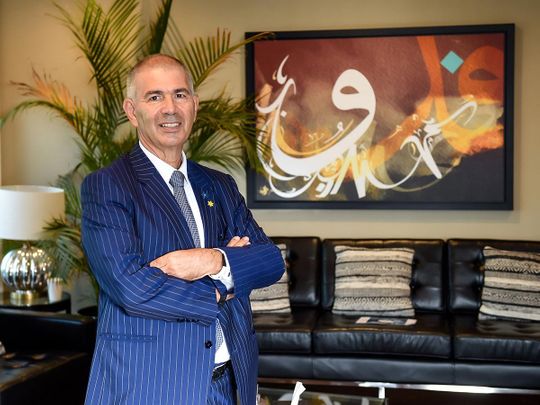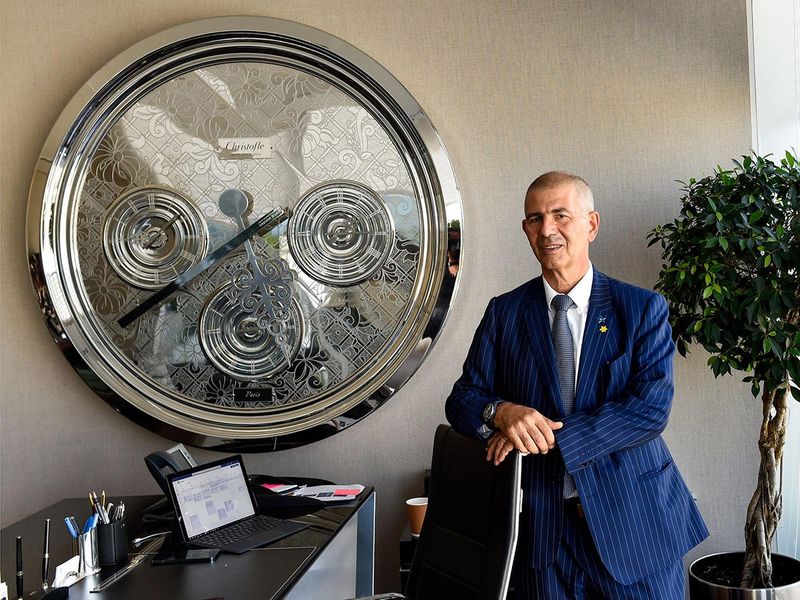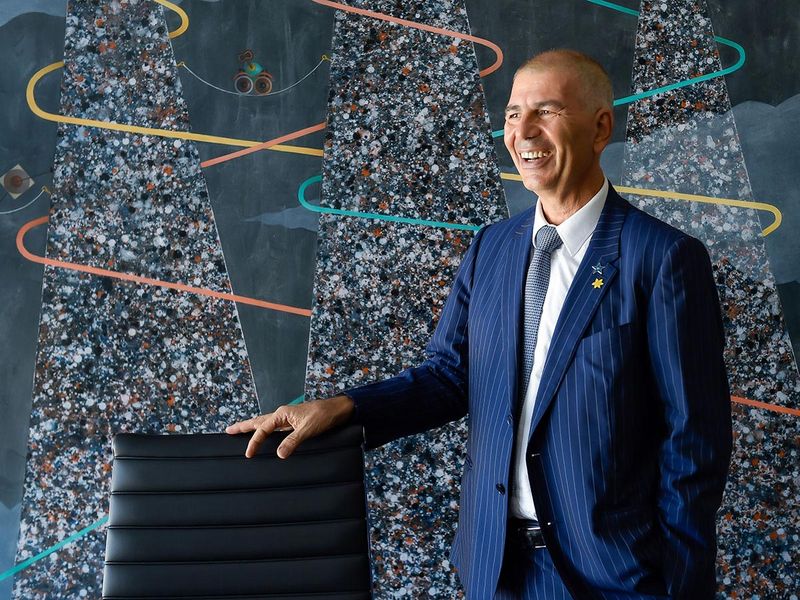
Dubai: The human touch… or the return of the human touch.
After a year living by social distancing and as more shoppers head for the safety of online marketplaces, Patrick Chalhoub does not believe that there is little space left for interactions as we knew it.
Or as the President of the Chalhoub Group says, the “human touch”. “All those weeks and months of isolation within homes have changed consumers,” said Chalhoub, whose name and the family business that he heads have been a byword for luxury retail in the Middle East since 1955.
“The first thing that’s changed is our customers have become much more inclined to look for things… more meaningful things. They are looking for experiences – and that’s what we can offer.
“Now, whether we offer that experience through our physical store or portal is immaterial. We just have to have provide that product or service and make it the best experience for the customer when she or he makes that transaction.”
Business of beauty
For a group where selling the concept of beauty makes up 49 per cent of “what we do”, knowing what the shopper well is part of the package. For the fashionable and the well-off in the UAE’ and other Gulf markets, the Chalhoub operated stores was where they went to for their favourite international brands. More recently, they would do the same through Chalhoub-operated portals.
The family business traces its origins to 1955 in Damascus, and 10 years later shifted the base to Beirut. In the mid-1970's, there was another shift, this time to Kuwait. And that's where it continued until 1990, when Iraq did its invasion.
The Group HQ was shifted to Dubai.
Not just about ratios
According to Chalhoub, the only deal that matters for retailers is whether they can stay relevant. Whether that happens through an 80:20 mix between physical store sales or online or whether that should be 20:80 should not end up being a distraction for retailers.
“I hear a lot of people say move wholesale from retail to digital,” said Chalhoub, who joined the Group in 1979. “But I prefer to see the world in less of black and white terms. We have brought the best of digital into our retail stores, into the supply chain and in the support services.
“And we have brought the best of physical into digital. Before the pandemic, I would have said that by 2025, 25 per cent of our business will come from digital. Today, we are already at about 20 per cent. So, who knows what it will actually be in 2025?
“What no retailer cannot afford to do is stagnate in offering up new ways to shop – whether in store or portal.”

900-day run
Chalhoub knows the value of constant change. Over 900 days that ended in mid-2020, the Group went through a complete transformation in making digital the centrepiece of how it will do business in the future. Its organisational structure was worked on, how divisions interacted within changed, as did mindsets.
All through the 900 days, there was a board at the entrance to the Group headquarters in Dubai Design District that would show many days were left to make the transformation real.
“Did we reach all the targets we placed at the beginning? Where we came a long way is digitalising a lot of our activities. Where we have to achieve more is on the work we need to do the change of culture, change the organisation, its processes. That’s work in progress. I knew it will take more time.”
It has built a string of partnerships, whether in cosmetics, high fashion, or accessories. Ventures include those with Christian Dior and Sephora, as well as one with French footwear brand Christian Louboutin.
Secure the future
And then the pandemic made its entry in March last year. Chalhoub insists that COVID-19’s breakout did not alter the transformation timetable.
“We actually benefitted from having started on the foundation of our digital transformation,” he said. “It actually gave us the speed to react with more agility, to convince us more than ever to expect the unexpected.”
That’s a point retailers of all sizes and cutting across categories agree on. The pandemic forced them to bring in changes they typically would have taken longer to even think up. Whether it was supermarket operators scrambling to get their online portals and delivery services up to speed or cinema businesses launching drive-in cinemas, the UAE marketplace was witness to it all.
Chalhoub hopes that spirit stays on once the pandemic becomes a history lesson.
More of it, please
“There was more openness, whether it was within the Group or outside,” he said. “We had never before collaborated as a team as we did during the pandemic; never worked together with competitors as we did last year; and it was the same in interactions with developers and malls.
“We came together together against this adversity - but why wait until this pandemic happened to collaborate? Can’t we do the same during normal times for a win-win situation. We need to keep this collaboration spirit and make it happen again and again.”
Causes for redundancies
There were a few departures from the Group last year, brought on by the combination of the digital transformation and the pandemic effect.
“There’s another reason as well – each year, some leave as part of their own decisions,” Chalhoub said. “That’s a natural process.
“Our digital transformation meant we needed certain competencies in the Group – or we needed people in the Group to acquire those competencies. Those who were eager to learn succeeded, while some disengaged and were not able to do it.
“During the pandemic, we had to control costs due to decreased revenues. Even if we freeze any layoffs in the first four months, we had to restructure or close certain activities. But we made sure we treated them to the best ability we can. Layoffs are more difficult because we are a family business.”

Less is certainly more
The Group also closed stores, but that was a process it had set into motion even before COVID-19 had a name.
“Do you need four stores in a city to sell one brand? Each store must fulfil a business case. We have fewer stores, but they could be bigger than the ones before.
“With a physical presence, we have the human touch, which is still important to a business. That can never happen through a screen only. It’s about the one-on-one, and having a face-to-face. We are convinced about retail spaces - but less of it and offering more.”
Of the human touch...



